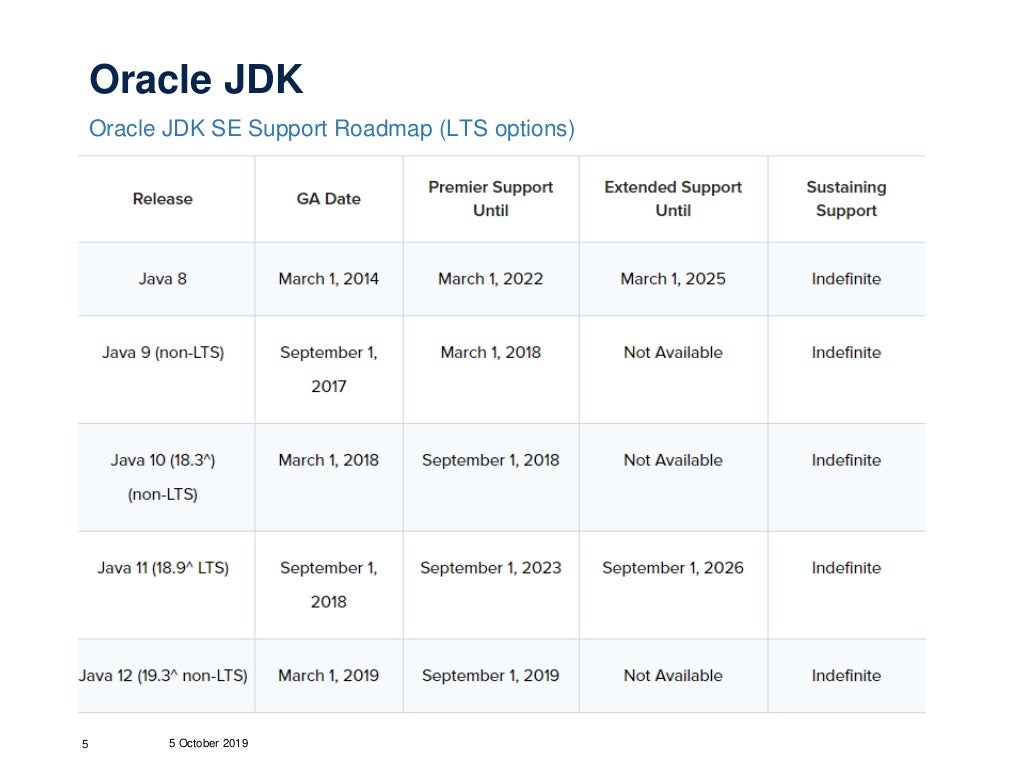
Those limits translate into options that are passed to the container engine when containers are deployed. Kubernetes and many other popular cloud orchestration systems let deployments limit container resources via CPU and memory quotas.
#Redhat openjdk update#
OpenJDK container awareness has been available in Java 17 and Java 11 since their respective general availability (GA) releases, and in Java 8u starting with update 8u202. These resource limits affect, for example, the garbage collection (GC) algorithm selected by the JVM, the default size of the heap, the sizes of thread pools, and how default parallelism is determined for ForkJoinPool. OpenJDK detects whether certain resource quotas are in place when running in a container and, if so, uses those bounds for its operation. As of this writing, OpenJDK 17, OpenJDK 11.0.16+ and OpenJDK 8u372+ are the only long-term support releases that support both cgroups v1 and cgroups v2 configurations. OpenJDK's container awareness detection uses Linux's control group (cgroup) filesystem to detect enforced resource quotas. In this article, you'll learn why container awareness is useful, what has changed recently in that area of OpenJDK, and what diagnostic options are available to help developers gain insight into how the JVM determines settings. By container awareness, we mean that OpenJDK detects when it is running inside a container. Do not try this at home.OpenJDK has been aware of Linux containers (such as Docker and Podman, as well as container orchestration frameworks such as Kubernetes) for some time. Working for Oracle, but the opinions expressed are my own and may not necessarily reflect the views of my employer. It is natural that development and testing resources would be focused as much as possible, which explains why Oracle has focused its tuning and stabilization engineering cycles on Java SE 7 and beyond.

The migration of production workloads to Java SE 7 has been quite steady over the past year, and a significant number of developers are already working with early releases of JDK 8. Many of Oracle's own products are supported on Java SE 6, and Oracle will continue to support Java SE 6 for customers of those products - and of course for customers that have Java SE support - for years to come. RedHat has been providing support for a number of their products on OpenJDK 6 for some time, and what they've announced is that they intend to continue supporting OpenJDK 6, and remaining active in a leadership role in the OpenJDK 6 project.ģ) As you mentioned, Oracle is NOT dropping support for Java SE 6. In this regard, kudos to the RedHat team! Also, this investment from companies like RedHat shows that the OpenJDK project is alive and well, and that the OpenJDK model is working well.Ģ) RedHat isn't "taking over support" that is an odd and unfortunate choice of words. Rate this Articleġ) It is worth pointing out that RedHat has been investing in OpenJDK for quite some time, and has contributed quite a few fixes for OpenJDK. Whilst Red Hat's move is presumably primarily aimed at customers using JBoss middleware and running OpenJDK on Red Hat servers, it does provide enterprises using Oracle's Java 6 a third option - switch to Java 7, buy Oracle support, or switch to OpenJDK 6. That is, by default such fixes are assumed to be applicable to OpenJDK 6, especially if having "soaked" in JDK 7 for a time without incident. bug fixes in JDK 7 that do not involve specification changes have presumptive validity for OpenJDK 6. Most bug fixes that Oracle makes for JDK 7 will be applicable for JDK 6 as well, a point noted on the OpenJDK 6 website. Red Hat's focus will likely be closing security holes and fixing other bugs as they are found in OpenJDK 6. The firm now offers only commercial support for that version, and pricing information is available here. Originally set for July 2012, it was moved first to November 2012 and then to February 2013. Java 6 is still widely used in a large number of enterprises, a fact which Oracle tacitly admitted when it pushed the End of Life date for Java 6 back twice.

#Redhat openjdk Patch#
The release notes for the patch state that "Oracle recommends that users migrate to JDK 7 in order to continue receiving public updates and security enhancements".įor its part, Red Hat states that it “has transitioned into a leadership role for the OpenJDK 6 project, effectively extending support for the technology and its users".
#Redhat openjdk series#
Update 43 is the latest in a series of emergency patches to deal with a set of severe vulnerabilities that have plagued the Java browser plug-in of late. Red Hat have announced that they are taking over support of OpenJDK 6, just days after Oracle posted what it says will be the final freely available update, number 43, to its commercial Java 6 development kit.


 0 kommentar(er)
0 kommentar(er)
